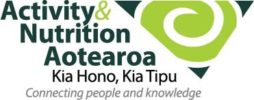06 Aug Dietitians not in favour of new sustainability guidelines for the health sector
• A general recommendation to reduce meat and dairy in hospitals is not appropriate
• The government should focus its efforts on prevention to reduce the number of people admitted to hospital
Dietitians across New Zealand are disappointed in some of the food-related recommendations included in sustainability guidelines for the health sector, announced by Associate Health Minister Julie Anne Genter last week.
The guidelines are intended to steer District Health Boards in their approach to sustainability, with the Ministry of Health reporting that the health sector is responsible for an estimated three to eight per cent of New Zealand’s carbon emissions.
Dietitians NZ, the professional association for dietetics, believes that the recommendation to reduce meat and dairy in hospitals indicates that the nuanced considerations surrounding appropriate foods and nutrition for patients have not been taken into account.
CEO of Dietitians NZ, Kath Fouhy, says “while dietitians agree that promoting the consumption of plant-based foods as a general public health message is the right thing to be doing, this is not an appropriate recommendation for those unwell in hospital”.
“Patient nutrition requirements are specific and general population eating guidelines do not apply to those that are ill. Malnutrition is common in patients, and often meat and dairy in meals is one of the best ways of ensuring nutrition requirements are met.”
Fouhy says, “The government does not currently have any strategies in place for the prevention of obesity which we know increases our risk of so many diseases – cancer, cardiovascular disease, type 2 diabetes.”
“If we truly want to make a sustainable change, we need to think about how we are going to reduce the number of people going to a hospital in the first place.”
Dietitians NZ members were not consulted in the development of the guidelines.
Media Statement 5 August 2019

